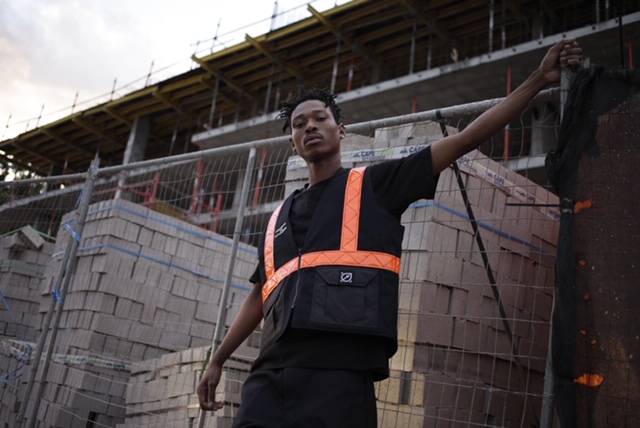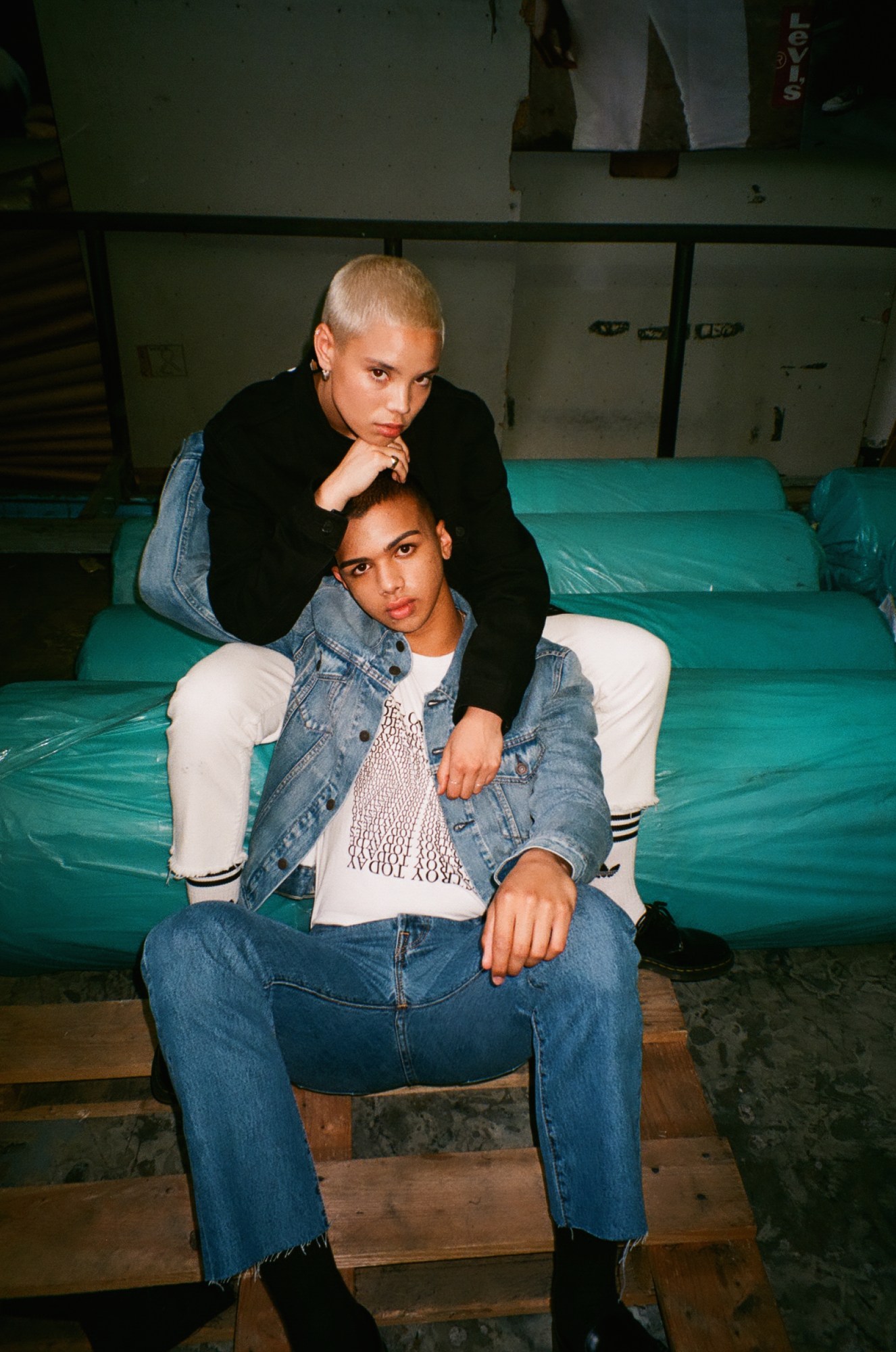It was the late 80s and streetwear was beginning to blow up into a worldwide movement. What started as a byproduct of America’s skateboarding and hip-hop subcultures, now had explosive global success, with kids from London to Tokyo obsessing over Stüssy and Supreme and starting local scenes of their own. But for wannabe designer Anthony Smith, a young person of color living in a segregated city, tapping into streetwear culture wasn’t as easy as flipping on the television or cracking open a copy of Thrasher magazine. He was raised in Port Elizabeth in South Africa’s Eastern Cape and was not only geographically isolated, but had little access to foreign media and imports due to economic sanctions imposed against South Africa in response to the country’s racially oppressive apartheid system.
“It was really difficult to get information from the outside world when it came to any subculture,” says Smith, who grew up skateboarding and had dreams of one day following in the footsteps of his US idols by starting a skate brand of his own. “We’d seek out what little information we could through MTV VHS tapes or fashion magazines or skate videos that somehow made their way into the country and then emulate our own version of things.”
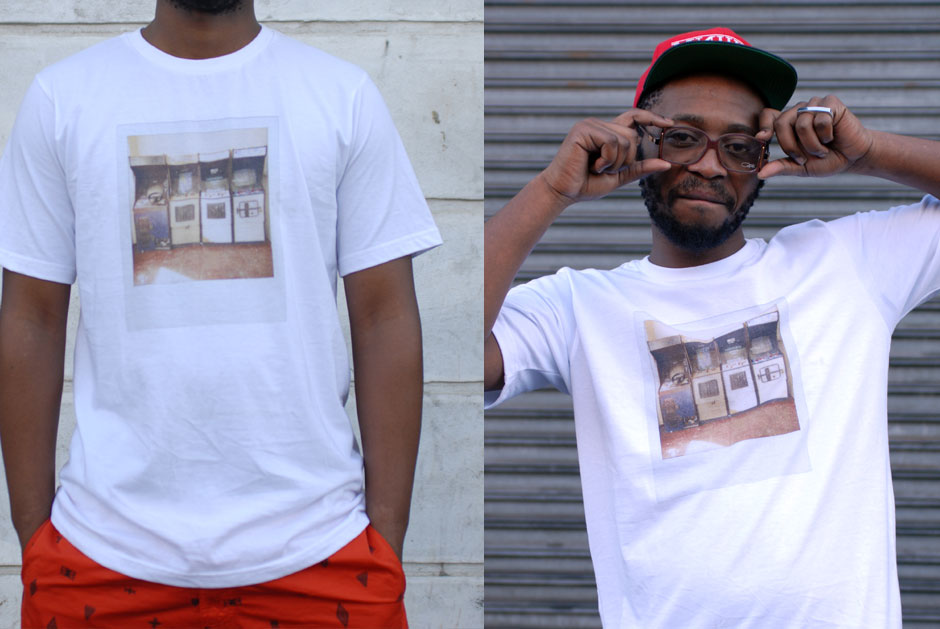
Enacted in South Africa in 1948, apartheid was a system of institutionalized racial segregation that functioned with the goal of upholding white supremacy. Non-white South Africans were forcibly displaced from their homes and relocated to townships and ghettos, causing socioeconomic disparity that still afflicts the country today. In 1986, the United States passed the Comprehensive Anti-Apartheid Act, which imposed economic sanctions banning new US trade and investment in South Africa and eliminated many direct flights to US airports. Japan and a handful of European countries soon followed suit and passed similar legislation of their own, ultimately contributing to the end of apartheid in 1994.
Despite their egregious social and financial disenfranchisement during this period, communities of color developed vibrant creative subcultures that were fueled by a desire to be part of bigger global conversations. In Cape Town, skateboarding and local club culture were huge, and seeing as the coastal city also boasted a history as South Africa’s textile and clothing capital, it was natural grounds for a local streetwear scene to bloom. “Working class people would know someone who made clothing and had access to industrial machines. Even though they didn’t have money, they were creative and still wanted dope shit so they would make it themselves,” explains Smith. “I think that might’ve been one of the ironic benefits of being isolated as the southernmost people of Africa — we were forced to create our own things or put our own spin on things that we loved from subcultures that we really resonated with.”
In 2004, ten years after apartheid ended, Smith finally realized his childhood dream and launched a streetwear brand of his own. He was inspired by golden era American bootleg arcade games that he played at local corner stores as a kid but also wanted his line to honor streetwear’s true roots in Cape Town. Thus, he decided to name it 2Bop, which is a term for a 20-cent piece (the standard price to play a video game) that dates back to British colonial days. “It’s slang that’s quite little known today but is still used in communities of color around South Africa,” explains Smith, who integrated other local jargon into the graphics of his designs. “Using that term, it’s kind of unexpected and local and niche. Naming the brand after it, it celebrates the language and the history and the heritage of these communities in a different way.”
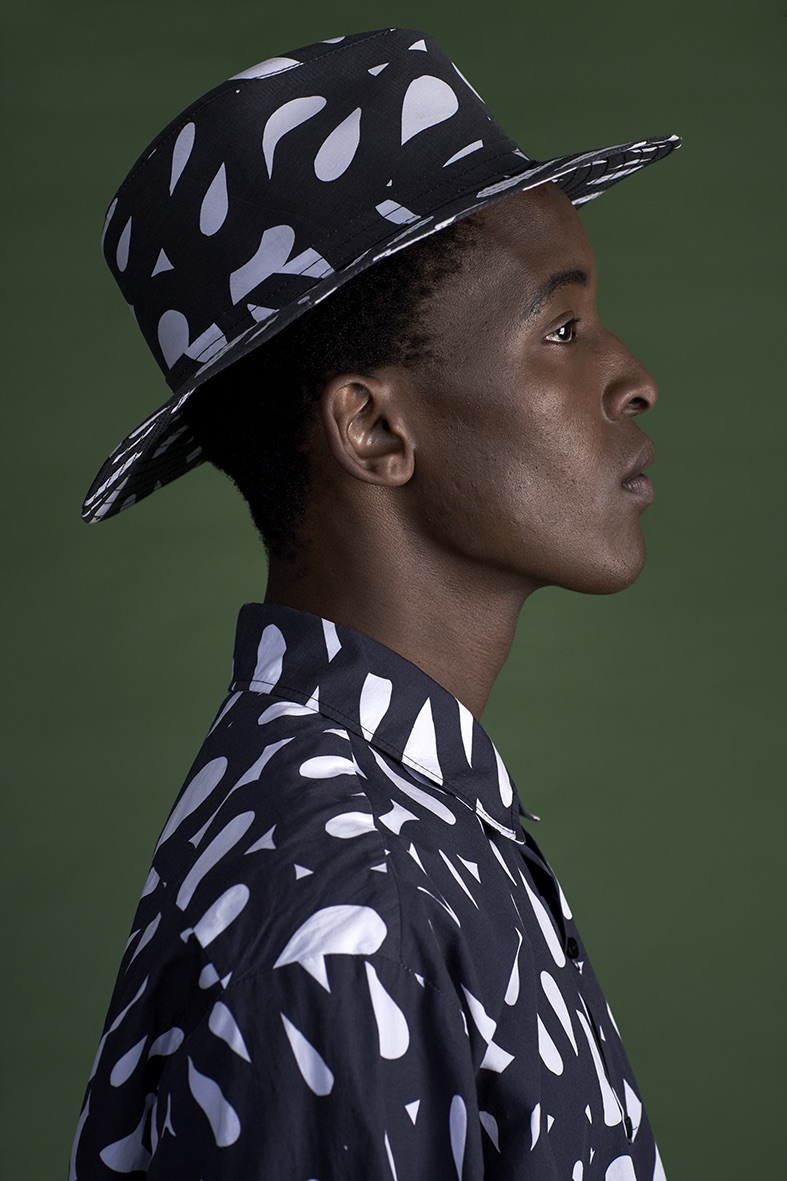
Over the past 15 years, 2Bop has evolved from graphic crewnecks featuring snapshots of arcade games into a full-fledged clothing and accessories line. From a boxy camouflage jacket featuring a fluffy wool collar to breezy bowling shirts and chino pants crafted from a hemp-linen blend, the brand’s offerings are functional and just straight up cool. Of course, tees and hoodies are still an integral part of the lineup.
Ask any Capetonian designer and they’ll tell you that Smith is a bit of a godfather to the local streetwear scene, having laid the foundation that allowed it to become the inclusive and burgeoning community it is today. Cape Town’s creative industry is still overwhelmingly white, so by launching a brand with such staying power and influence as 2Bop, Smith inspired other creatives of color to establish businesses of their own. Beyond that, he helped foster a culture where everyone is equally deserving of a seat at the table regardless of their heritage, gender, or creative purpose. “South African designers all have such unique and often differing background stories,” says Robyn Keyser, who launched her brand, Artclub and Friends, in 2016. “In my mind, we all owe Anthony Smith for the work he’s created and for the role he’s played in creating a space where South African designers are able to connect with their communities.”
That’s the thing that makes Cape Town’s streetwear landscape so extraordinary — it’s a bouquet of brands that each have a unique point of view and genuinely want to relate with people through their designs. Unlike other markets that are oversaturated, impersonal, and feel wholly motivated by money, this one has a real soul — you can feel the intention and legacy behind it.

Keyser’s Artclub and Friends was founded with the goal of shattering gender constructs through unisex clothing emblazoned with phrases like “pink is not a gendered colour,” while also bringing a femme voice to the male-dominated scene; Good Good Good, which was launched by Daniel Sher in 2016, focuses on creating sophisticated streetwear using classic tailoring practices and local, eco-friendly production methods; and Leaf Apparel, which was started in 2011, takes founder Salik Harris’ love for botany and skateboarding and twists them into elevated utilitarian styles. Each designer believes in what they’re trying to achieve on a singular level. Collectively, they want their work to bring people together. “Art doesn’t discriminate, it’s an expression of someone’s view based on their own lived experiences and should be viewed as that,” explains Harris. “The fact that someone can create something that can be enjoyed by everyone shows me that fashion does not discriminate against where you’re from, your color, gender or past.”
Cape Town’s streetwear scene experienced a new level of camaraderie when in 2015, Smith opened a retail location in Cape Town’s Woodstock neighborhood alongside two other respected designers within the city’s scene — Anees Petersen of Young and Lazy and Mathew Kieser of Sol-Sol. Nostalgically called Corner Store, it functioned as both a shop that stocked the three brands and a clubhouse for anyone and everyone who was interested in streetwear. “We were all hyped,” says Kieser, who had launched his brand a year prior to opening Corner Store. “We got friends involved with various aspects of it and had an amazing team behind and just went with it. That was a fucking great time.” From pop-up shops championing other local brands to parties held during fashion week, it became a nuclear force within the scene. As described by Smith, “It was beloved and a hub for local streetwear for awhile.” But in October 2018, Corner Store officially shuttered its doors — while the passion behind Cape Town’s tight-knit scene is there and locals are aware of and support homegrown brands, the climate is still extremely challenging for independent businesses.
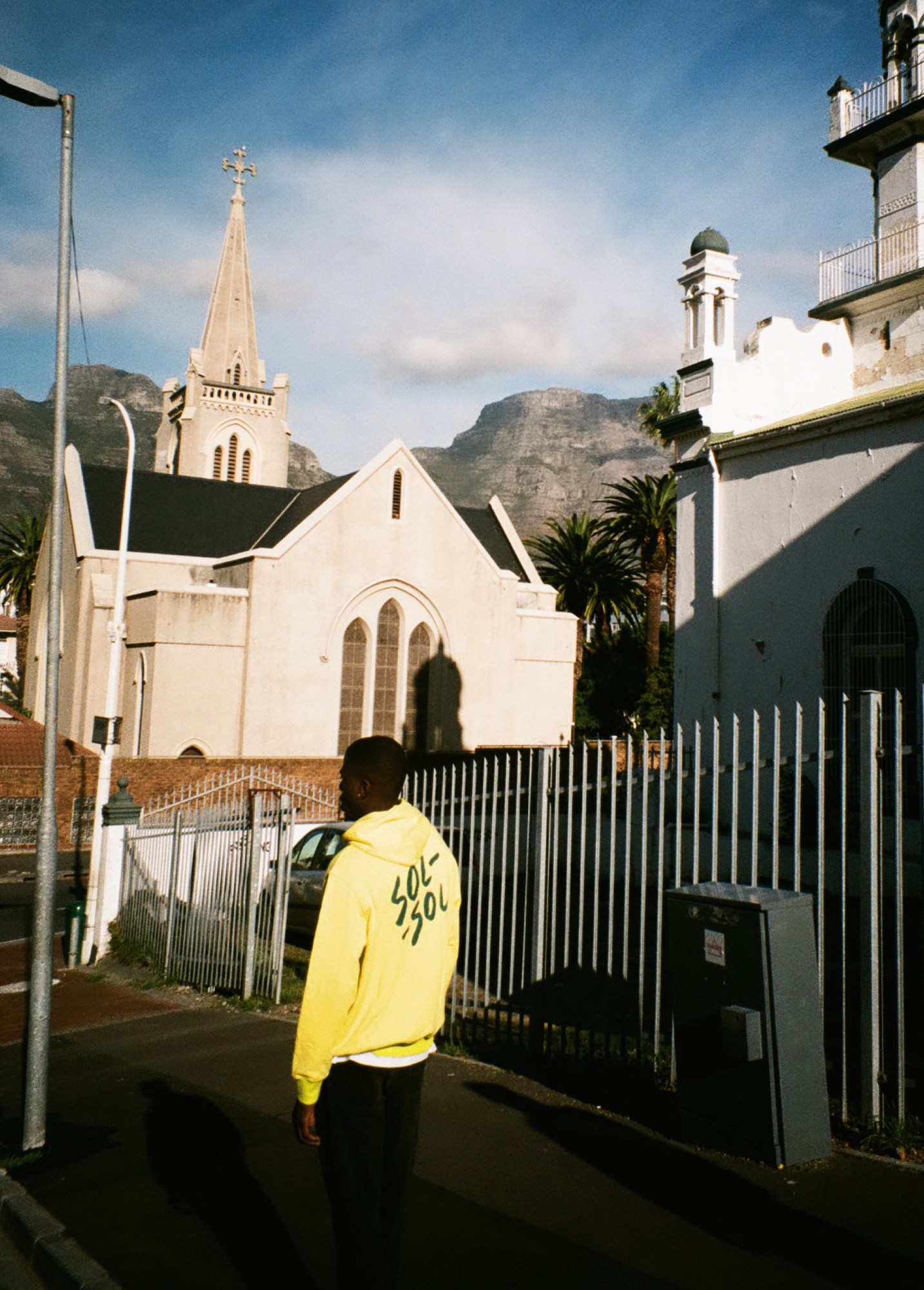
For one, South Africa’s low average disposable income means that people simply aren’t spending much of their extra money on clothing. That, coupled with the country’s isolated location when it comes to tapping into international markets, has made it incredibly difficult for local brands to be self-sustainable. “Every single one of my friends who owns a streetwear brand is currently doing another permanent job as a more reliable source of income,” says Sher. While some designers have attended trade shows in Europe and the United States in an attempt to break into the international wholesale market, a lack of experience dealing with buyers prevented them from successfully executing any substantial deals. “We are in desperate need of a sales agency that can represent the best South African fashion brands on a global scale,” says Sher.
Cape Town’s streetwear scene is nothing if not industrious and continues to push forward past these hurdles with the same tenacious resilience it was born from. Orphan Street Clothing Shop (OSCS), a store founded by Kieser and his wife in 2017, has become a new cultural hub in its own right, and the soul of the local scene is being championed via social media-savvy vanguards like streetwear collective Broke Boy$.
“I’d like for the local scene to branch out, go against the grain, and export our talented local design and unique experience to the rest of the world,” says Smith. “It would allow people to really value their voice but also see themselves as being capable of aesthetically resonating anywhere.”
